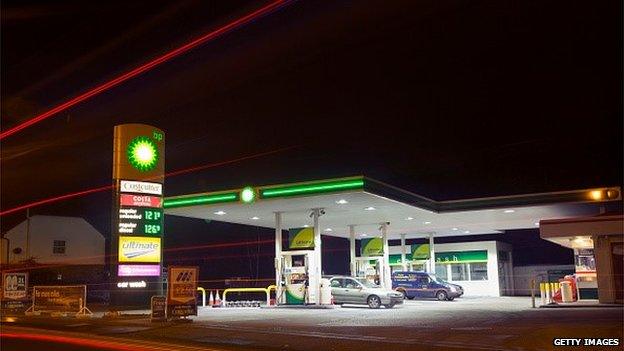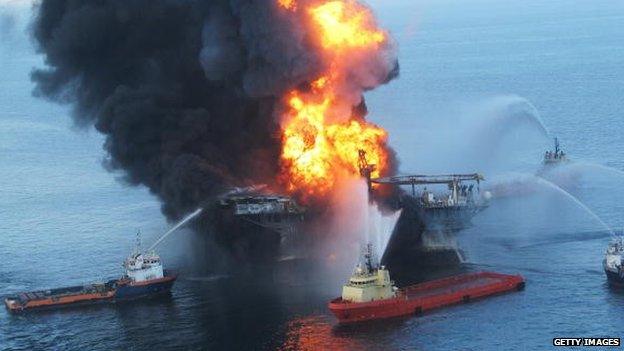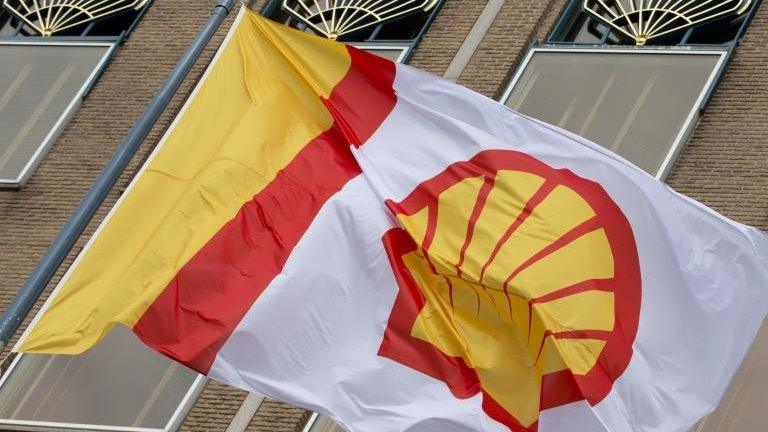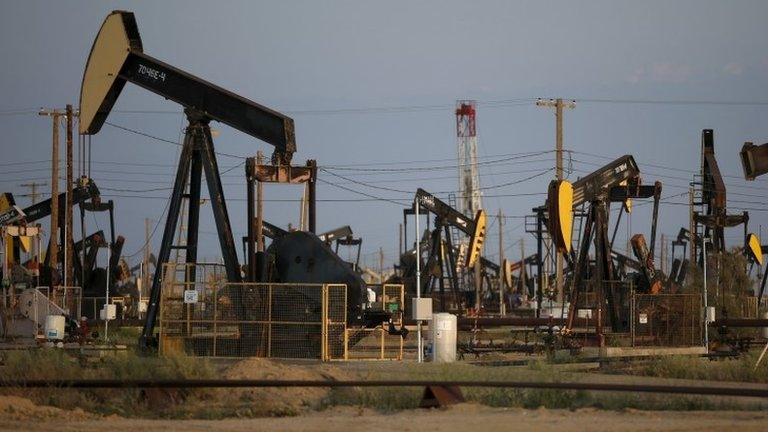BP profit hit by oil price fall
- Published

Oil giant BP has reported a sharp fall in profit for the three months to the end of March as the dramatic fall in oil prices takes its toll.
Underlying profit for the period fell 19% to $2.58bn compared with a year earlier.
A big rise in revenue from BP's refining business made up the bulk of its profits.
The results, external come at a time of uncertainty for oil companies. Oil prices are 50% lower than last year.
Chief executive Bob Dudley said BP's results reflected the "weaker environment and the actions we are taking in response".
Strong downstream
The results were, however, better than expected. Most analysts had forecast replacement cost profit (RCP) of about $1.3bn.
RCP is a measure of profitability used by the oil industry to take into account the price of oil.
Oil and gas companies' business are largely made up of "upstream" activities - getting energy out of the ground - and "downstream" - refining it into useable products.
BP's downstream business made the company $2bn in RCP in the first quarter, compared with $794m for the same period last year.
That helped offset a big slump in profits from BP's oil exploration operations, which reported RCP of $372m compared with $4.7bn a year earlier.
"Upstream result was significantly affected by lower oil and gas prices as well as weaker gas marketing and trading and $375m costs associated with the cancellation of contracts for two deepwater rigs in the Gulf of Mexico," BP said.
Downstream benefitted from greater efficiencies in refining, which lowered costs, as well as better marketing, the company added.
Brent crude oil prices averaged $55 a barrel in the first quarter of 2015 - almost half the average price a year ago.
Anish Kapadia, analyst at Tudor, Pickering Holt and Co, said: "[Profits] look very strong thanks to the downstream but underlying [profits] in upstream and the overall cash flow were extremely weak."
BP maintained the quarterly dividend at 10 cents per share to be paid on 19 June.
Richard Hunter, head of equities at Hargreaves Lansdown, said the 5% yield remained appealing to investors given ongoing low interest rates.
'Attractive target'
Shares in BP rose 1.5% to 483.9p in morning trading in London, valuing the company at £87.5bn. The stock has risen more than 17% this year.
Michael Hewson, chief market analyst at CMC Markets UK, said: "The next question now is whether this [profit] makes BP a more attractive target for an acquisition."
The company has shrunk after selling assets in the wake of the Gulf of Mexico disaster in 2010 and is now worth considerably less than rivals Exxon Mobil or Shell.
On Monday the Financial Times reported that the UK government would oppose a bid from a foreign company.

The Deepwater Horizon disaster occurred in April 2010.
BP said on Tuesday that it had taken another $332m charge linked to the Deepwater Horizon accident, bringing the total to $43.8bn (£28.7bn).
BP is the first oil major to report first quarter results, with Shell and Exxon Mobil following on Thursday.
Earlier this month Shell announced a £47bn deal to buy oil and gas explorer BG Group.
The slide in oil prices has also affected results at Total. Adjusted first quarter profits fell 22% to €2.4bn ($2.6bn, £1.7bn) compared with the same period last year, while revenue slid 30% to $42.3bn. Analysts had expected profits of $2.1bn.
Although the French company's activities were disrupted by unrest in Yemen and Libya, oil production rose 10% to 2.4m barrels per day.
- Published8 April 2015

- Published27 April 2015
